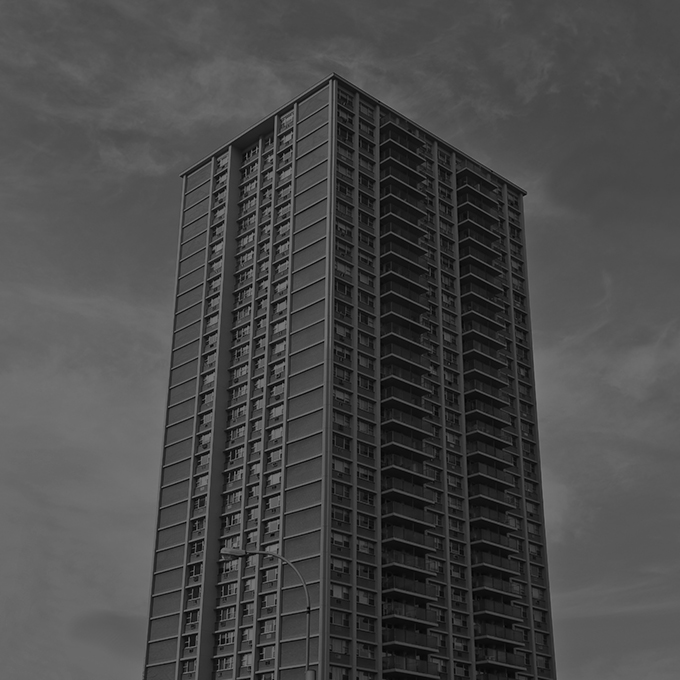GTA APARTMENT VACANCY 50 YEAR HIGH
REMI Magazine
According to the latest Urbanation report looking at newer purpose-built rental apartments, the Toronto vacancy rate rose to a 50-year high of 5.7 per cent in Q4-2020, up from 1.1 per cent in Q4-2019.
“The GTA rental market faced its toughest challenges to date in 2020 due to COVID-19,” said Shaun Hildebrand, President of Urbanation. “While rents have a long way to go before returning to their peak and supply will continue to be a headwind in the near-term, some improvement can be expected in 2021 as vaccinations eventually lead to higher immigration and at least a partial return to the office for downtown workers and in-class learning for post-secondary students.”
Toronto vacancy rate rose to a 50-year high of 5.7 per cent in Q4-2020, up from 1.1 per cent in Q4-2019.
In the 905 region, vacancy rates increased from 0.8 per cent in Q4-2019 to 2.0 per cent in Q4-2020. The still low vacancy rate in the 905 can be attributable to a relatively limited amount of rental stock and increased population outflows from the City of Toronto. The overall vacancy rate for the Greater Toronto Area was 4.6 per cent in Q4-2020, up from 1.0 per cent in Q4-2019.
Average rents for purpose-built units that became available for rent during Q4-2020 declined 10 per cent year-over-year in the City of Toronto to $2,337 in Q4-2020, with average per square foot rents down 6.2 per cent year-over-year to $3.49 psf. The annual decline in average rents in the 905 region was milder at 2.2 per cent, down to $2,139, with average per square rents increasing 1.0 per cent year-over-year to $2.46 psf.
For the GTA as a whole, average monthly rents were down 8.0 per cent year-over-year to $2,289, declining 3.9 per cent year-over-year on a per square foot basis to $3.19 psf. When excluding new buildings with typically higher rents that finished construction in 2020, average GTA purpose-built rents declined 8.9 per cent year-over-year (down 5.7 per cent on a per square foot basis). The reported decline in rents was additional to incentives. Urbanation found that the majority of rental buildings surveyed continued offering incentives in the fourth quarter to attract new tenants, which included up to two months’ free rent.
There were seven new purpose-built rental apartment buildings that reached completion in the GTA during 2020 (six in Toronto and one in Mississauga), totaling 1,699 units. By the end of the year, the new buildings were 44 per cent occupied on average, with rents averaging $2,480 ($3.82 psf). By comparison, 11 new buildings (nine in Toronto and two in the 905) totaling 3,563 units reached completion in 2019, which were 70 per cent occupied by the end of last year with rents that averaged $2,654 ($3.77 psf). Looking ahead to 2021, 18 rental projects (15 in Toronto and three in the 905) totaling 4,977 units are scheduled for completion in the GTA, representing the highest total since 1993.

The average transacted rent for condo apartments in the GTA declined 14.1 per cent year-over-year in Q4-2020 to $2,076, which was the lowest level since Q2-2017. On a per square foot basis, average condo rents declined 13.0% to $2.95 psf, marking the first time rents fell below $3.00 psf since Q1-2018. Rent declines were steepest in the former City of Toronto mainly representing the downtown markets, with average per square rents down 17.2% year-over-year in Q4-2020 to $3.14 psf ($2,104). In the outer 416 region (including North York, Etobicoke and Scarborough), average rents declined 12.7 per cent year-over-year in Q4-2020 to $2.78 psf ($2,036), while average rents were down the least in the 905 region with an annual decline of 4.9% to $2.69 psf ($2,050).
2021 BOOM OR BUST IN THE HOUSING MARKET?
The Huffington Post
This could be the toughest year in living memory to make predictions about the economy ― especially the housing market. Amid the worst economic slowdown in decades, home sales and prices soared in many Canadian cities in 2020, along with housing markets in many other countries. The average house price in Canada has shot up by 13.8 per cent over the past year, and by 14.6 per cent in the U.S.
No wonder this year’s batch of year-end forecasts for Canada’s housing market are all over the map. From predictions of rapid price growth and housing shortages to warnings of a market crash, there’s a forecast out there for every taste. Which, admittedly, isn’t very helpful.
Broadly speaking, there are two camps: Those who see this year’s hot housing conditions continuing into next year, thanks to low mortgage rates and a lack of housing supply, and those who see trouble coming once mortgage deferrals and government income supports stop. Not surprisingly, real-estate groups are aboard the boom train. The Canadian Real Estate Association, an umbrella group of local real estate boards, is forecasting a 9.1 per cent jump in house prices in 2021, with Ontario leading the way with a 16.3 per cent jump in prices, followed by Quebec at 13.6 per cent.
“Current trends and the outlook for housing market fundamentals suggest activity will remain relatively healthy through 2021, with prices either continuing to climb or remaining steady in all regions,” CREA said in a forecast published in mid-December.
Mortgage rates have fallen, including the rate on the Bank of Canada’s stress test for borrowers, CREA noted. On top of that, record levels of migration into Canada in recent years have pushed up demand for housing, and CREA expects that to continue once the pandemic ends.
But right now, with border shutdowns in effect, immigration into Canada is at historic lows, and several provinces ― including Ontario and British Columbia ― saw their populations decline in 2020, the first time that has happened in records going back to 1946.
That’s one reason why some forecasts are calling for a decline in house prices in 2021.
EMPLOYMENT LANDSCAPE
Statistics Canada
In November, 1.3 million Canadians received regular EI benefits, down 3.4% from a record 1.4 million in October. According to the Labour Force Survey (LFS), a total of 1.7 million Canadians were unemployed during the week of November 8 to 14. The vast majority of the unemployed (1.5 million) were looking for work, while 253,000 still had a connection to a job, either because they were on temporary layoff or had arrangements to begin a new job in the near future.
In November, 75.3% of regular EI recipients last worked in the services-producing sector, compared with 59.5% in the same month a year ago (not seasonally adjusted). The industry hardest hit by public health measures—accommodation and food services—accounted for 18.5% of regular EI beneficiaries in November, up from 7.0% in November 2019. November LFS results showed a second consecutive monthly decline in employment in accommodation and food services, and employment in this industry remained farthest from pre-COVID February levels.
The number of regular EI beneficiaries declined in seven provinces in November, led by British Columbia (-20,000; -11.3%) and Alberta (-19,000; -9.4%). According to the LFS, employment grew by 24,000 (+1.0%) in British Columbia in November, while it was little changed in Alberta. At the same time, Ontario (+4,100; +0.9%), Quebec (+5,400; +1.9%) and Manitoba (+3,800; +9.6%) recorded increases in the number of EI recipients. Results from the November LFS indicate that, amidst tightening of public health measures, employment growth continued to slow in Central Canada, while employment declined in Manitoba.
RECENT APARTMENT SALES
70 Wilson Park Road – Toronto – SOLD $7,995,000 / $319,800 per suite / 3.00% Cap Rate
This sale consists of 25 rental apartments in prime Parkdale in downtown Toronto. This walk up building was substantially updated in the past three years including 14 renovated suites. The building contain mostly bachelor suites of decent size. Even with the renovation there still were 9 suits with rental upside at over 40%. This property was marketed and sold by The Apartment Group and the Buyer was a first time private investor.
96 Trethewey Drive – Toronto – SOLD $3,350,000 / $279,165 per suite / 3.39% Cap Rate
This property is located in west Toronto in a "B-" location and consists to 12 suites mostly one and two bedrooms. The building was well maintained with on site laundry and surface parking. The asset is located in a single family area with a site area of around 0.30 acres. The building dates from the 1950's and was fully marketed and sold to a private investor who has purchased many similar buildings in the past three years.
204 Kingston Road – Toronto – SOLD $5,825,000 / $388,335 per suite / 4.12% Cap Rate
This sale consists of 15 rental apartment suites owned by a private investor located east Toronto. The building contains 12 one bedrooms and 3 two bedrooms and was built in 1925. This is a classic turn of the century concrete building with brick exterior and flat roof. The structure were considered to be in good condition for its age. There are 8 surface parking spaces. This property was fully marketed and sold to a private investor who is active in this location.
214 Wellesley Street East – Toronto – SOLD $9,075,000 / $238,815 per suite / 3.27% Cap Rate
This is a 0.27 acre site improved with a 3 storey walk up rental apartment building containing a total of 38 bachelor suites. It is a concrete structure with double windows and flat roof. The property was built in 1923 and there are 10 surface parking spaces at the rear of the building. Located in prime downtown Toronto the building was owned by a long term investor and was sold to Fieldgate Developments Ltd. The asset was fully marketed.
THE APARTMENT GROUP
Together the team has completed over 1,500 transactions and has sold over $6.5 billion in apartments and development land. Put us to work for you and see the results. NO ONE has sold more buildings then our group. Experience, knowledge and professionalism will insure you get the right deal or the highest price if you are selling.
The Apartment Group is a dedicated team of professionals specializing in the sale of multi-residential investment properties. With over 40 years of combined experience, the team brings together their strengths including strong negotiation and sales skills along with highly technical market analysis and appraisal methods.
We are a boutique Brokerage but have the capabilities of the larger houses without the overhead. We have: an internal database of over 10,500 active apartment and land Buyers; a list of all apartment building owners in the Greater Toronto Area; our web site gets over 50,000 hits a month; we highlight properties for sale through our newsletter which reaches 10,000 investors monthly.
MITCHELL CHANG
President & Owner,
Salesperson
Direct: 416-907-8280
mchang@cfrealty.ca
LORENZO DIGIANFELICE, AACI
Broker of Record, Owner
Direct 416-907-8281
ldigianfelice@cfrealty.ca
JAKE RINGWALD
Salesperson
Direct 416-996-7713
jringwald@cfrealty.ca


